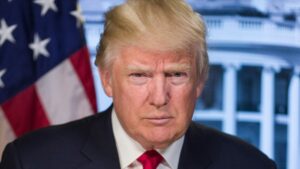For the first time in nearly seven years, the US government shutdown officially began at 12:01 a.m. ET on October 1, 2025, after the Senate failed to pass either of the two short-term funding bills. The breakdown highlights deep partisan divisions, with both Republicans and Democrats trading blame as federal agencies prepare for immediate disruptions.
Senate Votes Collapse, Triggering Shutdown
The deadlock was cemented on September 30, when the Senate voted 55-45 in favor of a Republican-backed continuing resolution passed earlier by the House. The bill fell short of the 60 votes required to overcome a filibuster, effectively killing the proposal.
Senate Majority Leader John Thune (R-SD) blamed Democrats, saying: “This is the Schumer shutdown.”
Meanwhile, Senate Minority Leader Chuck Schumer (D-NY) rejected that claim, accusing Republicans of “hijacking” negotiations with partisan riders.
“We need a serious negotiation, not one-party ultimatums,” Schumer said during an interview on NBC’s Meet the Press.
Trump, Democrats Clash in Final White House Meeting
Former President Donald Trump, who oversaw the 2018–2019 shutdown, hosted congressional leaders at the White House on September 29 in a last-minute attempt at compromise. However, the talks quickly fell apart.
Trump accused Democrats of blocking a “clean” extension, while Democrats countered that the GOP bill contained hidden cuts to Medicaid and foreign aid.
Two Proposals, No Resolution
The failed Republican bill (H.R. 5371) would have extended funding until December while pushing GOP priorities. Despite support from three Democrats—Sen. John Fetterman (PA), Sen. Catherine Cortez Masto (NV), and independent Sen. Angus King (ME)—it was blocked under Senate rules.
Democrats offered their own alternative: a one-month extension until October 31, which preserved Affordable Care Act subsidies. That plan failed 47-53 along party lines.
Sen. Rand Paul (R-KY) opposed both bills, calling them examples of “fiscal irresponsibility.”
Political Blame Game Intensifies
House Speaker Mike Johnson (R-LA) accused Democrats of putting politics over governance.
“Their demands are outrageous and their obstruction is harming government workers and Americans who rely on these services,” Johnson told CNN.
Progressive Democrats, led by Elizabeth Warren (D-MA), accused Republicans of pushing “MAGA cuts to healthcare,” while conservatives such as Stephen Miller argued Democrats were “choosing criminal aliens over citizens.”
Federal Agencies Ordered to Shut Down
White House budget director Russell Vought issued a directive instructing federal agencies to begin their shutdown procedures.
“The leaders of the executive branch departments and agencies should now execute their plans for an orderly shutdown,” Vought wrote in a memo.
He added that federal employees must report to work for one final shift to implement closure procedures. Agencies will continue monitoring developments, with updates from the Office of Management and Budget.
What This Shutdown Means for Americans
The government shutdown halts funding for most non-essential federal services, with impacts expected across federal agencies, including national parks, research programs, and routine administrative services. Essential workers, such as military and TSA agents, will continue working but without pay until funding is restored.
This marks the first US government shutdown since 2019, signaling escalating political battles ahead of the 2026 elections.




